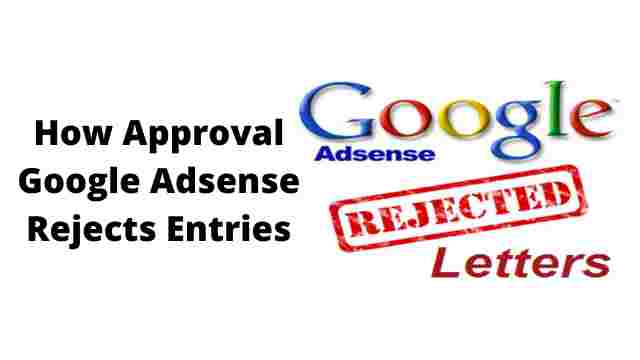Google Adsense identifies ads this one as unwelcome reasons “abusive” and “inappropriate.”
Then it sends an automatic rejection to the website owner. That’s where it’s different than AdSense’s original claim that it serves existing keywords:
If you are running ads in Google Adsense. And your ad-block program gets canceled by your client/payment processor. You are able to accept new keywords at any time without paying any extra license fees.
If you do not accept new keywords you permitted to continue running your ads until they expire. But this “auto-renewal” is only for existing keywords. It does not apply to keyword changes.
When a keyword deleted, an ad appears for users who are not detected as blocked the ad blocker. But, Google does not renew this ad without internet-based approval. Google keeps a record of all keywords and serves them only to the appropriate websites. As part of the program, if the website owner accepts ad impressions, approved for approval.
Google does not keep a detailed record of keywords and will not be able to detect keywords that deleted.
The website owner approved one of these keywords. Google would not be able to correct it unless the website owner removed the keyword.
Google does not know which keywords are legitimate and which are abusive. It also does not know which keywords are malicious. There are likely thousands of such malicious keywords served. But Google is not worried about those keywords and may not have a database of what those keywords are. according to Adsense’s online service.
Google Adsense Controls Entries Such As This One –
-
Google gives keywords a priority rating based on how likely the ad is to see. Google also creates a priority score for all new ads.
-
This prioritization system would develop a preferred keyword list. Which would make it easy for a website owner to find keywords approved by Google.
-
But Google does not maintain a keyword database. Rather, Google assigns priority ratings to all new keywords that requested.
-
We’ve told Google about keywords that are inappropriate or abusive. Often, Google approves them because the number of ads of that type makes it difficult to turn away a request.
-
But, we were unable to get Google to remove some of the illegal keyword requests we sent. Even when the keywords are not related to any of Google’s approved ad types, such as social media.
Google does, but, offer some control over keywords:
If you choose to not renew, you can choose to do so for specific keywords. To do so, enter an approval request URL, and, again, Google does not keep any record of the approval request.
In the description, you may list a new keyword request that has not approved. At that point, you will have to accept the keyword request at the URL that you have chosen. If you refuse to renew a keyword request, Google will reject the ad. This ad will appear with an application ID number for this keyword.
Google Adsense Controls Entries Like This –
Note that this ad labeled with the following keyword request: “Facebook, Identify”. There’s no intention that this keyword to Facebook’s advertising network.
Now, it’s likely that Facebook will not be able to the ad because the keyword would not to its advertising network. But Facebook would be able to see that this ad would to a specific user.
In that case, Facebook could decide to block that user from seeing ads on their website. In which case Google’s ad would not to that user, as well.
If you accept this ad, then you may be risking sharing your email address with Facebook. You should never share your email address with a site that does not have your permission to do so.
In some cases, Google may reject an ad request it believes a keyword request is not legitimate
For example, if the keyword request is for a keyword that is not an approved ad type. Google may decide to reject the request.
So, if you feel that you’ve missed a keyword that has deemed inappropriate or abusive by Google Adsense. You’ll need to allow Google to control that keyword. As noted above, Google has not made this type of control very clear to site owners.
How To Exact Control Over Advertisements Like This –
While many people preyed on these automatic keyword requests over the last year. Google has not stated how it will determine what forms an inappropriate keyword or ad.
Google may even not have a system that determines what is inappropriate.
You can find out whether your keyword requests have accepted by Google by sending an email. Send an email to this address.
An important part of your email response the keyword Google did not approve. You should also include the URL of the website that Google rejected the ad.
Furthermore, if you can provide the link to the website that posted the keyword. You may have a case to bring against that website.
You should also submit a keyword request to Google via Google’s online form
In this case, your keyword request will not an individual, but by Google’s ad team.
This process will take a few days to complete but will give you an idea if your keyword request is valid or not.
If you decide to send an email to Google. Then send your keyword request through a legitimate email provider, such as Gmail. You do not want your email to end up in Google’s spam folder.
Google has a huge advertising network. For every keyword that Google does not approve. Hundreds of thousands of dollars will go out of the Google ad network’s revenues.

I can see that you are an expert at your field! I am launching a website soon, and your information will be very useful for me.. Thanks for all your help and wishing you all the success in your business. google ads tricks